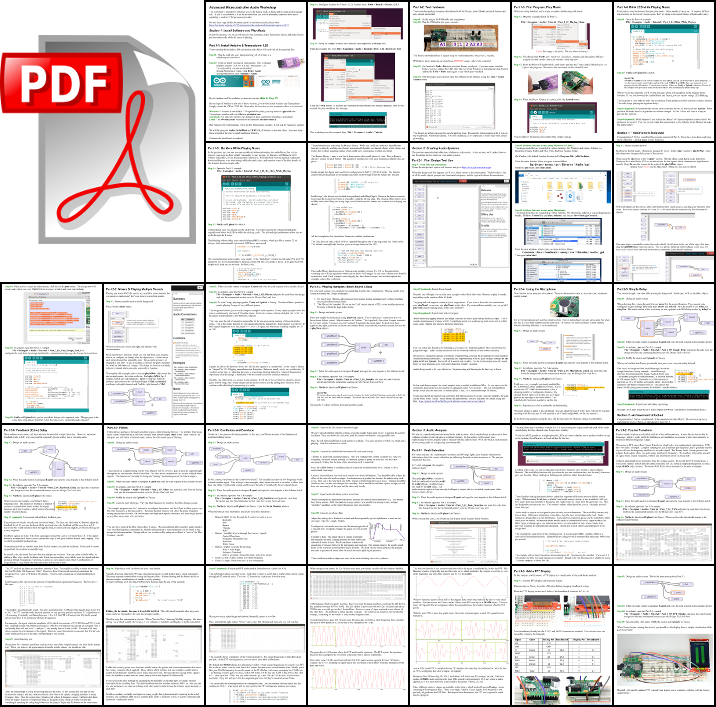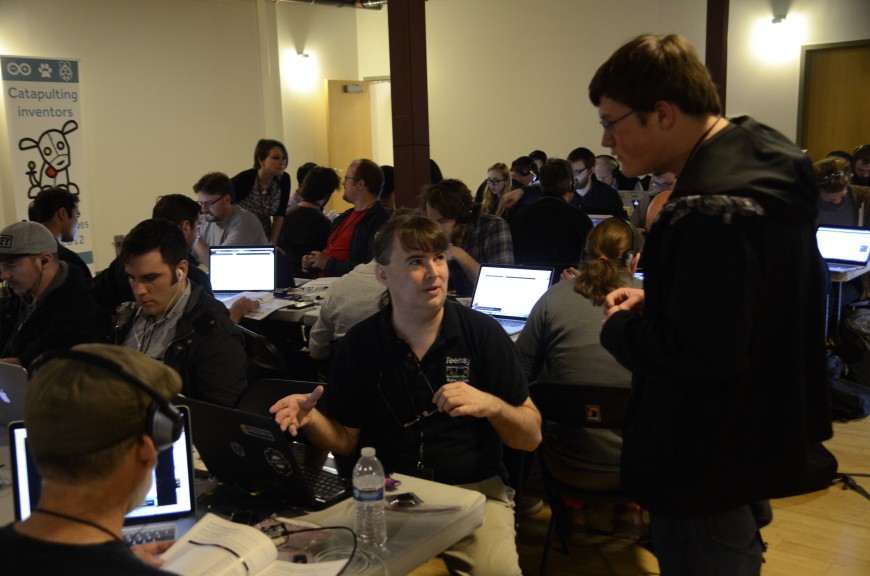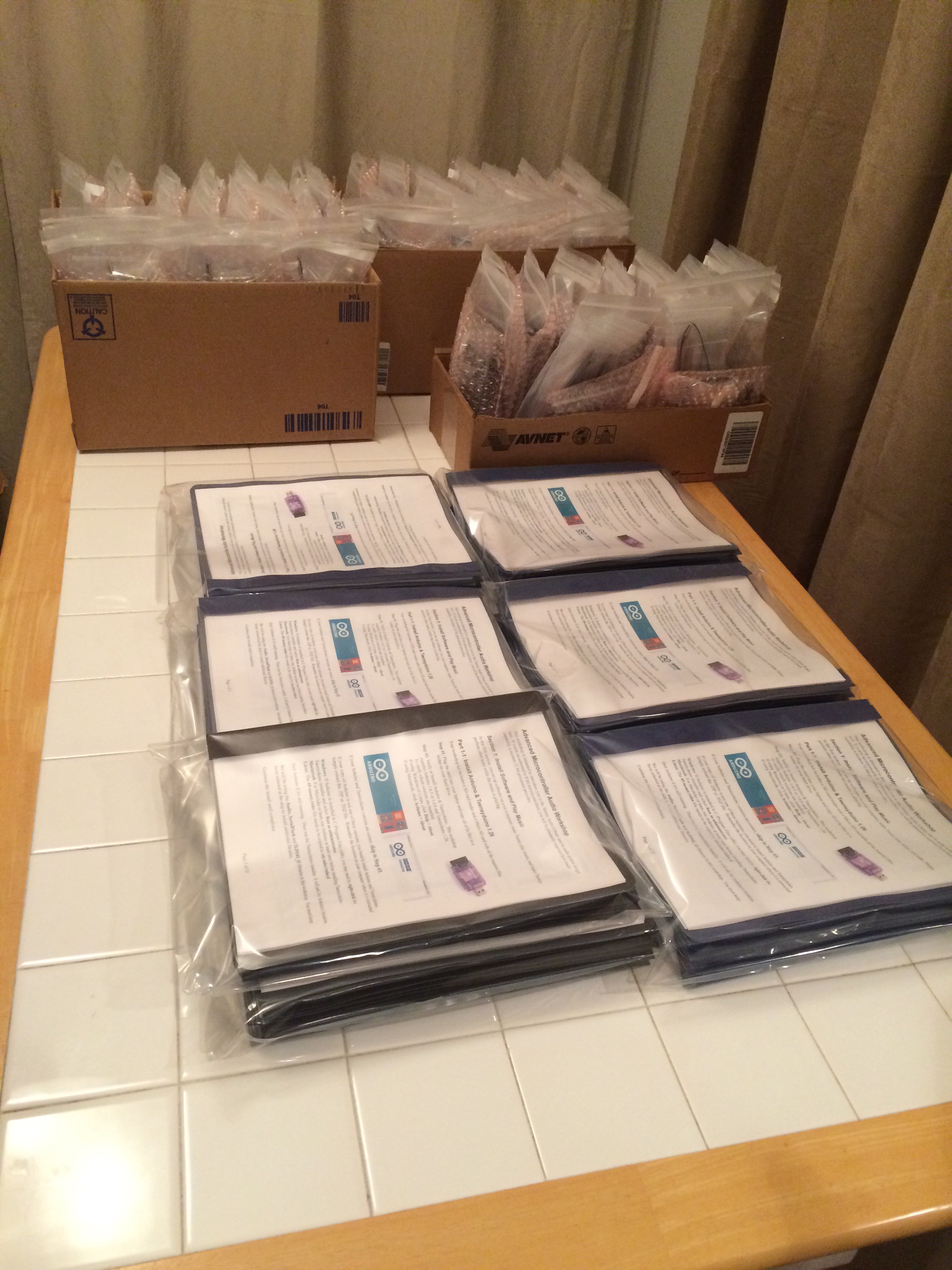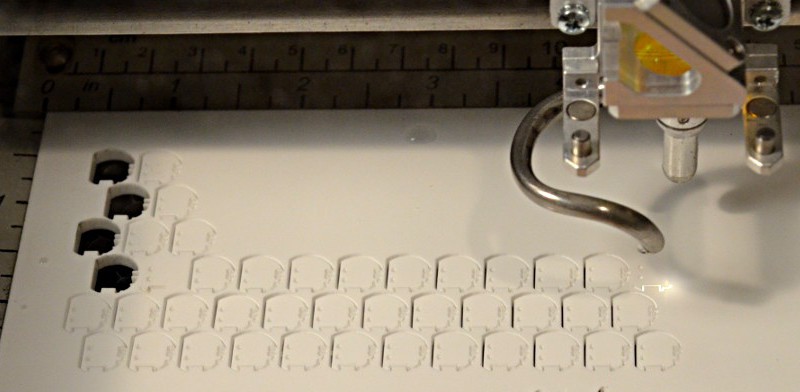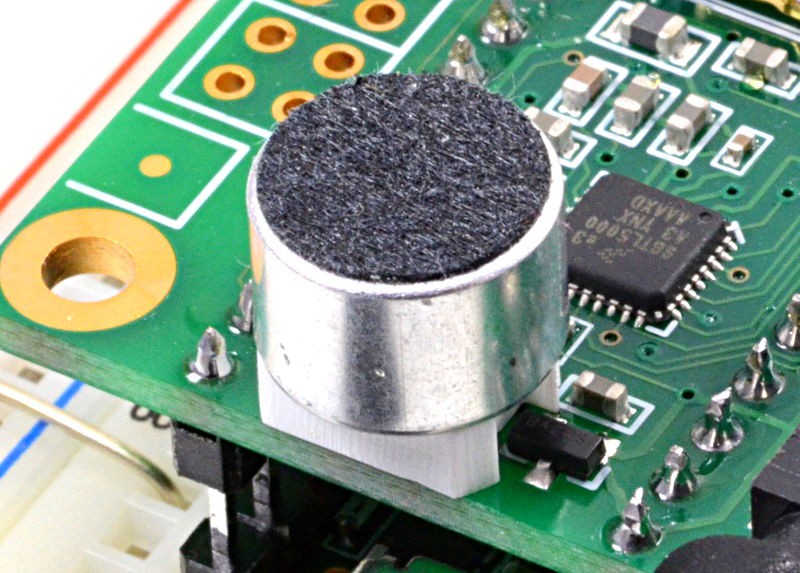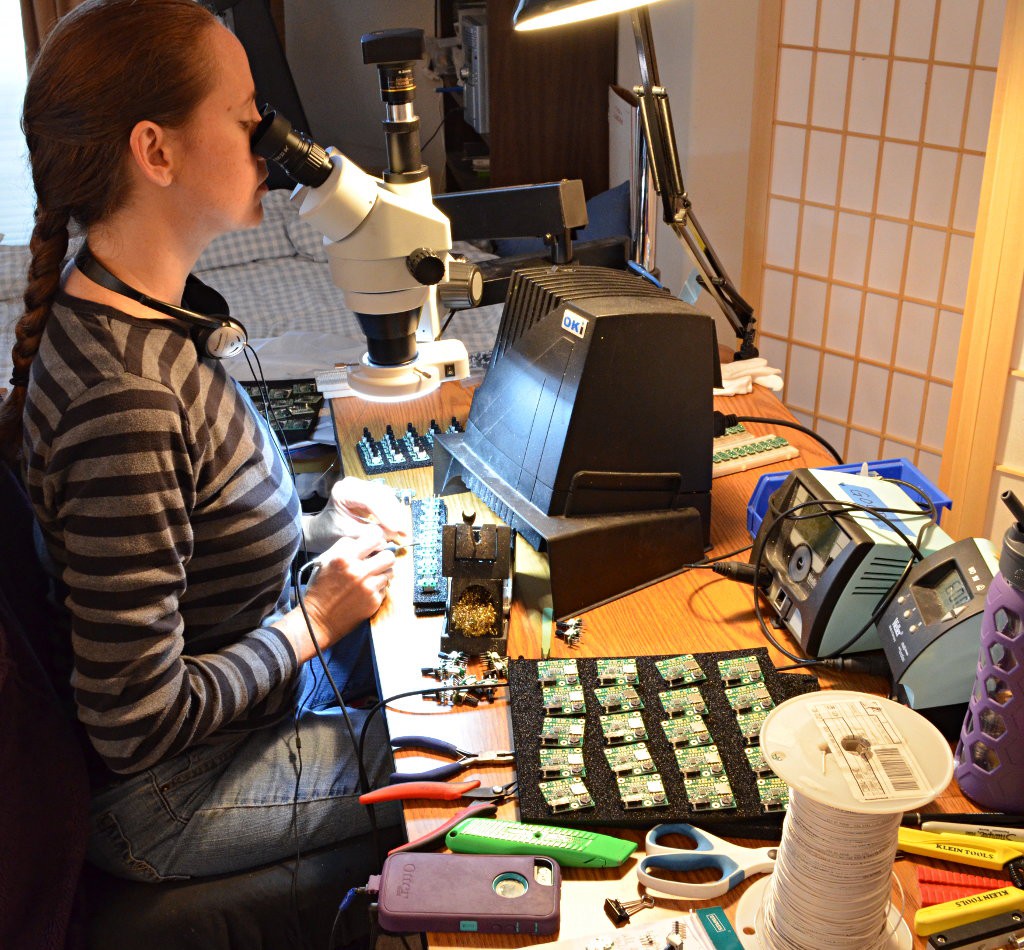-
Kits & Parts Available & Alex's Virtual Workshop Videos
03/28/2016 at 12:06 • 0 commentsFinally, a kit is available for online purchase. Actually 2 kits. One is fully built and tested, like the ones we had at the SuperCon workshop. The other is just the special parts not sold separately by PJRC, so you won't have to make lots of separate orders to different sites (all with shipping costs) if you already have some of the parts and wish get the rest to build you own kit.
The fully built kit:
http://www.pjrc.com/store/audio_tutorial_kit.html
The extra parts, to build your own:
http://www.pjrc.com/store/audio_tutorial_diy_parts.html
Of course, you need to download the 31-page PDF for the workshop manual (now with this fancy preview image). Best to print on a color printer. Low-tech paper doesn't consume valuable screen real estate while running Arduino and a browser to draw the audio designs.
https://github.com/PaulStoffregen/AudioWorkshop2015/raw/master/workshop.pdf
Alex Glow recently did the entire workshop in 4 virtual workshop videos. Unlike the scripted, rehearsed and edited video Alysia and I made, Alex's videos show what the workshop is really like when experienced for the first time.
-
Workshop Successful
11/17/2015 at 22:30 • 2 commentsThe workshop was a huge success. Almost everyone got though at least the delay sections and many commented on really enjoying the experience. Some got all the way to the end, and one guy managed to modify the TFT peak example to show FFT data!
The winner of the "most over the top" badge hack used the FFT part of this workshop as the starting point for that amazing work. Truly awesome!
I've updated the PDF for the printed manual with an errata note for the image on page 4, and a special note about the i2ss object which was a minor issue for several people during the workshop. Hopefully these will help for anyone who tries to do the workshop on their own.
Here's another photo from Hackaday's first article covering the SuperCon. I'm really glad to have been able to attend the event and contribute this workshop. It was indeed an awesome weekend.
-
Ready to Go
11/13/2015 at 16:04 • 1 comment -
Video = A *lot* of work!
11/10/2015 at 15:59 • 2 commentsAlysia & I have completed 2 marathon video recording sessions. Now I'm working to piece all the recordings together. We used 1 camcorder (usually zooming to the electronics), 1 screen capture, and 2 voice recorders to capture us talking and also the Teensy audio output. In other news, editing video is quite a lot of work....
-
Filming has begun!
11/09/2015 at 22:20 • 0 commentsSince posting our workshop plans for the Superconference, we've received an outpouring of requests for a video of the workshop. Because of all the detailed information we are delivering in these tutorials, we decided that filming a step-by-step video version was the best solution. We began filming yesterday afternoon and worked well into the evening, and we're about to pick up where we left off. We believe it will be worth the effort to educate a wider audience about the capabilities of this awesome library interface.
-
Stand Alone Browser Compatibility Improved
11/07/2015 at 03:28 • 0 commentsAs of today, the web-based design tool we'll be using in the workshop is compatible with all 4 major browsers when used without Internet access. It's always worked with all 4 when accessed on the web, but until now if you wanted to access a copy on your hard drive without a web server, you were limited to only Firefox.
Now Safari, Chrome, IE and Firefox all work without access to any server. Linux, Macintosh and Windows are fully supported.
There were basically 2 issues. First was removing some leftover code from Node-Red (an open source IoT project where most of the GUI code came from) which loaded extra stuff from the server at startup. There's really no need, so all the documentation html was merged into the main file and that loading step disabled. The second part involved removing still more leftover cruft which interfered with Google Chrome when accessing without a server. Thanks to HWGuy on the forum for pointing out the issues impacting Chrome!
The HTML file is buried pretty deep inside Arduino's folder structure, so accessing the web server is still simpler. But if we don't have internet access, you can dig down several folders and open the right index.html file, and it will "just work" regardless of whether you use Chrome, Firefox, IE or Sarafi.
-
Laser Cutting Microphone Mounting Hardware
11/04/2015 at 15:51 • 0 commentsThese little laser cut washers will be on every kit, supporting the little microphone.
Without these, the mic pins can easily bend as you handle the board. Too much and they'll break. These little washers fill the space and have notches to fit around the nearby surface mount parts. The result is a much more durable build.
In the workshop, some parts will involve real-time audio processing, where you speak into the mic and hear the effects applied.
-
Soldering & Prep Work
11/02/2015 at 22:50 • 0 comments -
Netbooks with 1GB RAM Have Troubles
11/02/2015 at 09:53 • 0 commentsI learned a lot at yesterday's test workshop. One small issue, and the only technical problem that came up yesterday which I couldn't fix, was compatibility with a netbook.
That tiny netbook did work (slowly) for nearly all the workshop examples. But when the extra code in section 2-3 was uncommented, very strange problems came up, where the Arduino IDE couldn't find the code which had been just successfully compiled. I'm pretty sure this is related to a Java memory allocation issue. Some time ago, the Arduino devs increased settings related to Java memory, and it caused many people to report bugs on older computers, so they lowed it. My best guess is those problems all still exist, but only happen on the smallest netbooks or extremely old machines.
We're going to try getting a message out to everyone signed up, hopefully middle of next week, about how to pre-install the software. That message should also warn not to bring networks or ancient machines with 1GB or less memory.
-
Test Run in Portland
11/01/2015 at 16:03 • 0 commentsToday (Nov 1st) Alysia and I are doing a small test run of this workshop, here in Portland, for a group of 15 people. It's only going to be sections 1 and 2 today. Section 3 isn't completed and tested at this point.
http://dorkbotpdx.org/micro_audio_2015
I'm pretty excited, and a tiny bit nervous. I think we're going to learn quite a lot, especially about how practical cramming so much material into this workshop really is. Whatever we learn today, we'll have just only 2 weeks to refine things.
 Paul Stoffregen
Paul Stoffregen